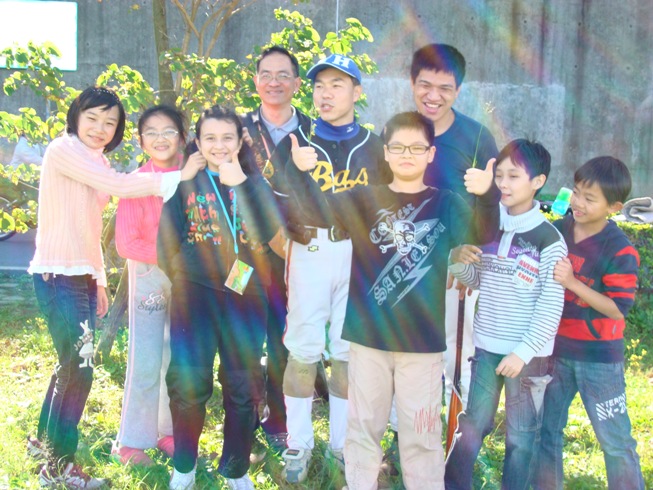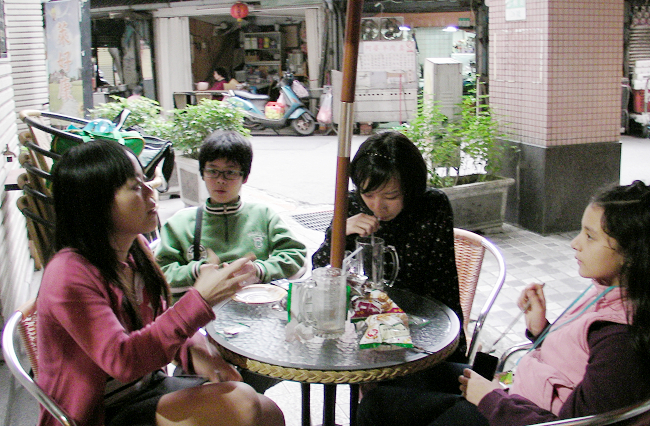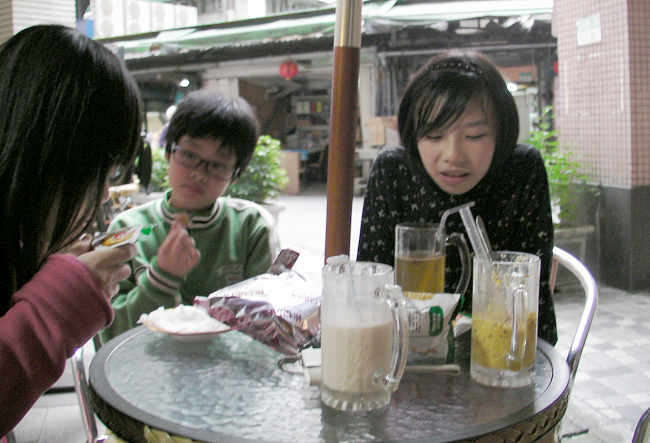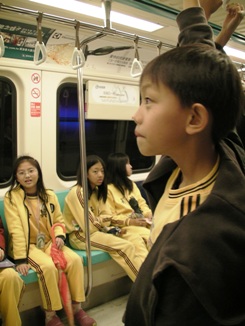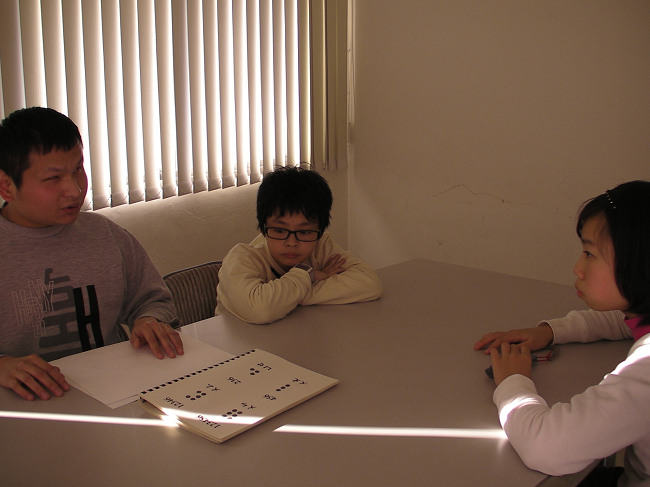We started the project by doing online research. We also had a questionnaire survey on primary students’ opinions on the visually impaired while we interviewed those related to the topic. After discussion, we came to three conclusions that we should: (1) be more caring, (2) create a barrier-free environment, and (3) promote guide dogs.
1.Be more caring:
Most of the primary students are willing to offer help to the visually impaired. They think only people wearing sunglasses, holding blind canes, or having guide dogs with them are the visually impaired. From our interviews, we learned that some of the visually impaired don’t wear sunglasses or carry canes. It is hard to tell if they are blind by their looks. When those people travel on buses, people might have them yield seats. Also, the visually impaired need help with things like reading bus timetables and walking in dangerous road sections. Therefore, when we see someone in need, we should voluntarily offer to help. Certainly, it is safer to have an adult with us when we offer to help. As long as we pay more attention to things around us and try to be more caring, those being helped will be very happy. It is as the saying goes: Pleasure comes from helping others.
2. Create a barrier-free environment:
We learned from our interviews that the biggest problem for the visually impaired is traveling, which includes road conditions and the convenience of taking mass transit systems. Some passages of arcades and sidewalks are uneven that it is difficult for blind people, wheelchairs, and baby carts to pass. Stacks on arcades and excessively low street signs are dangerous, too. We’ve also seen ill-mannered bikers traveling on arcades or sidewalks. We are worried the visually impaired might have difficulty avoiding bikes in such areas. Therefore, it is important for the government to enforce a ban and make these areas safer for pedestrians.
For their convenience, the most common transportation for blind travelers are the MRT and taxis. The visually impaired wish to take buses as they are more economical. Consequently, it is necessary to help them get on buses. It is difficult for blind travelers to read bus timetables, and it is even more difficult to know whether the buses they are taking have arrived. Other than broadcasting buses (that are actually not loud enough), some visually impaired friends also suggest to set up GPS on their cell phones. To take the bus, one only needs to press a button and goes to a bus stop with barrier-free services. The person will be notified when the bus is approaching, and there will be no more missed buses in the future.
3.Promote guide dogs:
Although we all have learned about guide dogs in school, some people still think guide dogs are similar to other dogs. Sometimes there are news about guide dogs being refused entry. Therefore, it is our responsibility to tell our parents and other people that guide dogs aren’t just any dogs. They provide service for the blind, so it is forbidden to feed, play with, or have any provoking interactions with them. Also, guide dogs are the legs of their owners. The public should be trained and help guarantee their entry. Guide dog friendly signs are to be displayed in restaurants and public places. Therefore, guide dog refusal won’t happen again.
During the days of our research, we’ve seen the light in many visually impaired friends: street artist Mr. Wen-Sheng Chiu, Auntie Chang and Uncle Tsao from massage parlor, Miss Hsiao Chen from “Sweet, So Sweet” juice bar, the teachers from Technology Development Association for the Disabled, and players from The Beep Baseball Association. They are confident-glowed; each one of them works hard in both professional fields and life. They don’t need anyone’s sympathy. They only need an environment that allows them to walk safely like other people. The environment hasn’t yet completed, so we should try to help when they are in need. We believe this will make the light brighter.
